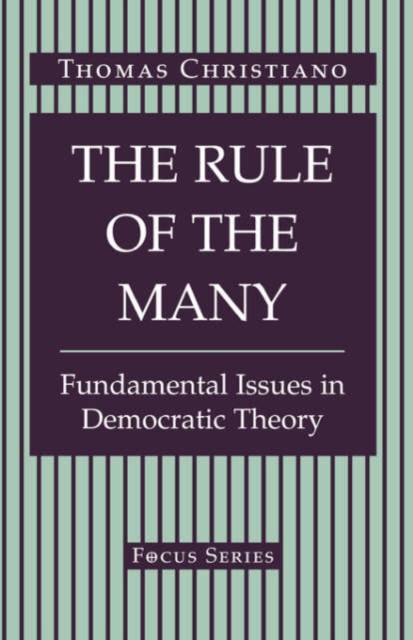
- Afhalen na 1 uur in een winkel met voorraad
- Gratis thuislevering in België vanaf € 30
- Ruim aanbod met 7 miljoen producten
- Afhalen na 1 uur in een winkel met voorraad
- Gratis thuislevering in België vanaf € 30
- Ruim aanbod met 7 miljoen producten
Zoeken
€ 123,95
+ 247 punten
Uitvoering
Omschrijving
There is no problem more crucial to contemporary political thought than the status of democracy, its role, and its problems in the contemporary world. In this survey of democratic theory, Thomas Christiano introduces the reader to the principles underlying democracy and to the problems involved in applying these principles to real life situations.Begining with the simple, democratically inspired presumption that the interests of all citizens are to be treated equally, Christiano argues that the implications of such a minimal commitment clarify the nature of democracy and what must be demanded of democratic institutions. He argues that it is the collision of this demand for equality with the fact of pluralism of interests that determines how democratic institutions ought to be designed. This strong sense of reality will be welcomed by those interested in practical questions of transition in newly democratizing states.Christiano combines a broad coverage of important positions taken by others with the exposition of his own ideas, allowing his text to appeal to a wide range of readers, from introductory students to experienced scholars. Clear, accessible, and often elegant, The Rule of the Many is a splendid introduction to democratic theory, one that will take its place as both an important scholarly contribution and as an effective text.
Specificaties
Betrokkenen
- Auteur(s):
- Uitgeverij:
Inhoud
- Aantal bladzijden:
- 320
- Taal:
- Engels
- Reeks:
Eigenschappen
- Productcode (EAN):
- 9780813314556
- Verschijningsdatum:
- 29/07/1996
- Uitvoering:
- Paperback
- Formaat:
- Trade paperback (VS)
- Afmetingen:
- 141 mm x 215 mm
- Gewicht:
- 408 g

Alleen bij Standaard Boekhandel
+ 247 punten op je klantenkaart van Standaard Boekhandel
Beoordelingen
We publiceren alleen reviews die voldoen aan de voorwaarden voor reviews. Bekijk onze voorwaarden voor reviews.







